Ever wondered why some eye creams are great for sensitive skin, while others irritate it? The answer is in finding the right mix of gentle yet powerful ingredients. These ingredients should calm eczema-prone eyes without causing more trouble. In this guide, we’ll show you the top 10 best eye cream for eczema made for those with eyelid eczema. Say goodbye to the pain, redness, and dryness that can bother sensitive eyes.
Key Takeaways
- Avène Soothing Eye Contour Cream is the top-recommended eye cream for sensitive skin, featuring soothing ingredients like chamomile, hyaluronic acid, and thermal spring water.
- e.l.f. Skin Holy Hydration Eye Cream is an affordable option that targets eczema-related concerns with peptides, cucumber extract, and green tea.
- Cetaphil’s Eye Gel-Cream provides fast-absorbing hydration and calming effects thanks to its hyaluronic acid, vitamin E, and chamomile formulation.
- Experts advise avoiding alcohol and added fragrance in eye creams for sensitive skin, and instead looking for ingredients like aloe, green tea, and cucumber extract.
- Properly testing eye creams for tolerability and suitability for the delicate eye area is crucial when dealing with eczema-prone skin.
Understanding Eyelid Eczema: Causes and Triggers
Eyelid eczema, also known as atopic dermatitis of the eye, is a common yet complex skin condition. It can significantly impact the delicate eye area. Understanding the underlying causes and potential triggers is crucial for effective management and relief. Let’s explore the key factors that contribute to this perplexing condition.
Genetic Factors
Eyelid eczema is often linked to a genetic predisposition. Individuals with a family history of atopic dermatitis, allergies, asthma, or hay fever are at a higher risk. The thin, sensitive skin around the eyes can be especially vulnerable to the genetic factors that contribute to eczema.
Environmental Triggers
In addition to genetic predisposition, environmental factors can also play a significant role in triggering eyelid eczema. Common triggers include exposure to cigarette smoke, harsh soaps, fragrances, and certain preservatives often found in skincare products. Even certain medications, such as eye drops or antibacterial ointments, can irritate the delicate eye area and exacerbate eyelid eczema.
Common Irritants
Eyelid eczema can occur independently or in conjunction with eczema affecting other areas of the body. Certain substances, such as contact with metals, preservatives, and harsh cleansers, can cause contact dermatitis and further irritate the already sensitive eyelid skin. Maintaining a gentle, hypoallergenic skincare routine is essential for managing eyelid eczema and preventing flare-ups.
By understanding the multifaceted causes and triggers of eyelid eczema, individuals can take proactive steps to mitigate symptoms. Incorporating eczema eye treatment and hypoallergenic eye cream into a personalized skincare regimen can provide much-needed relief and protection.
“Eyelid eczema is a complex condition that requires a comprehensive approach to manage effectively. By identifying and addressing the underlying causes and triggers, individuals can take control of their eye health and find lasting relief.”
Signs and Symptoms of Eye Eczema
Eczema, also known as atopic dermatitis, can affect the skin around the eyes. It causes dry, itchy skin and painful red rashes. These symptoms can be frustrating and uncomfortable.
A reddish, inflamed rash on the eyelids is a common sign. This rash can itch intensely, leading to more irritation. Over time, the skin may become thick and develop cracks or scales.
Swelling is another symptom of eye eczema. The eyelids may look puffy and swollen. This can cause discomfort and even affect vision in severe cases. Some people also feel a burning sensation or pain in the affected area.
Scratching and irritation can cause eyelashes to crust or mat. This makes the condition even more uncomfortable and can affect vision. Eye eczema may also increase the risk of other eye problems, like pink eye or corneal inflammation.
The severity and symptoms of eye eczema vary from person to person. They depend on the cause, environmental triggers, and skin sensitivity. Getting medical help quickly is important for proper diagnosis and treatment.
Knowing the signs and symptoms of eye eczema helps individuals seek the right treatment. This improves their eye health and overall quality of life.
Best Eye Cream for Eczema: Top Products Review
Dealing with eczema around the delicate eye area can be tough. But the right eye cream can offer much-needed relief and hydration. Here are some top eye creams for eczema-prone skin:
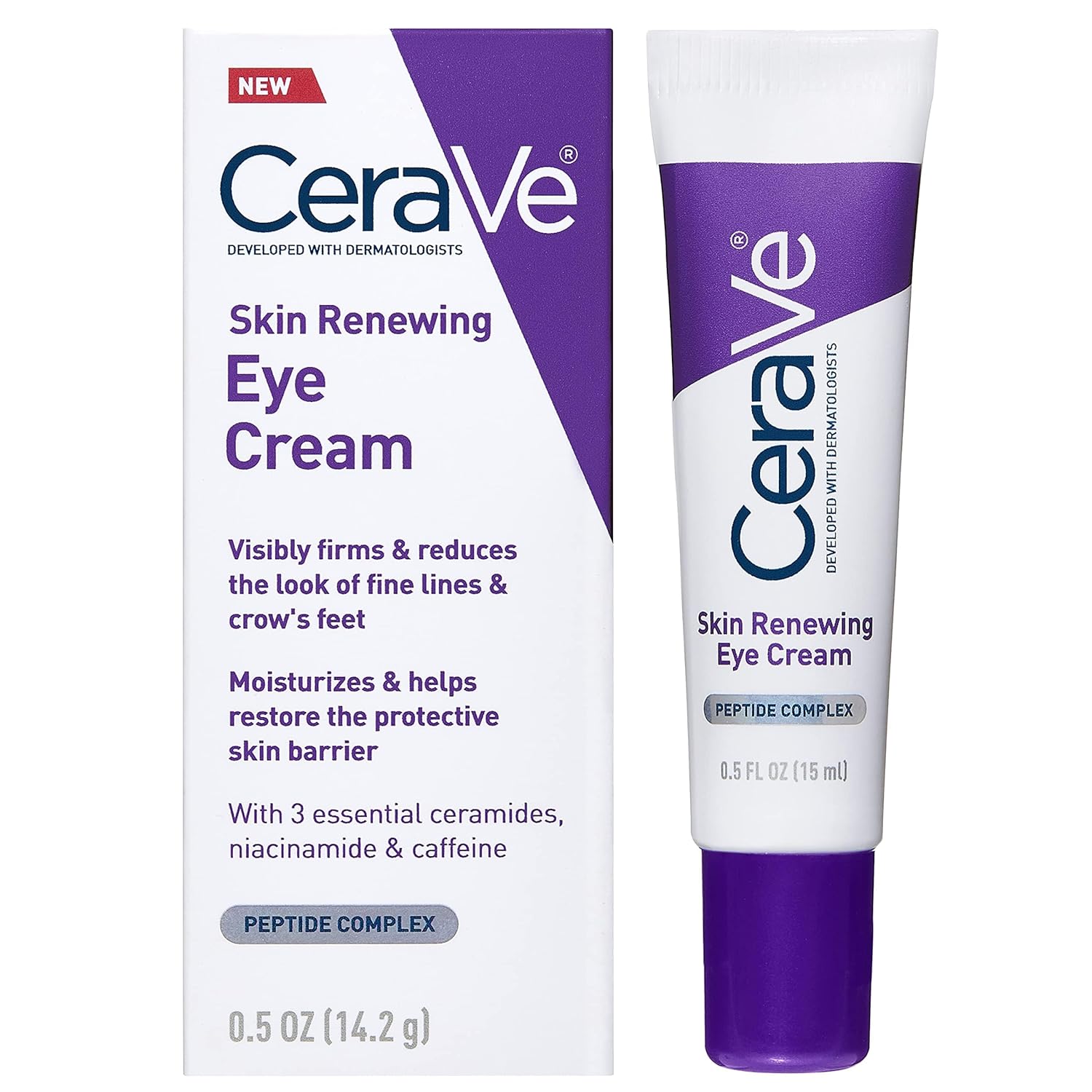
CeraVe Skin Renewing Eye Cream
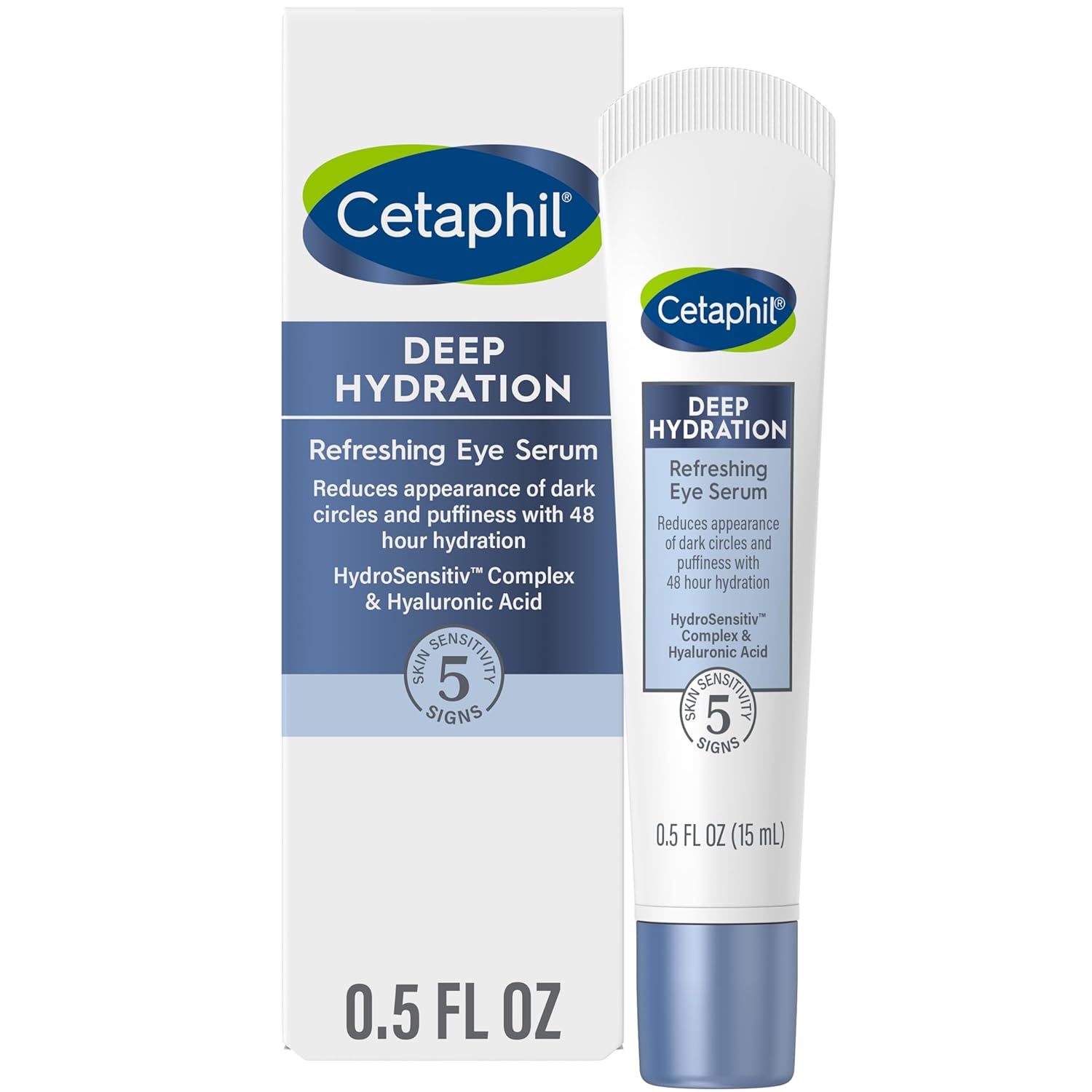
Cetaphil Hydrating Eye Gel-Cream
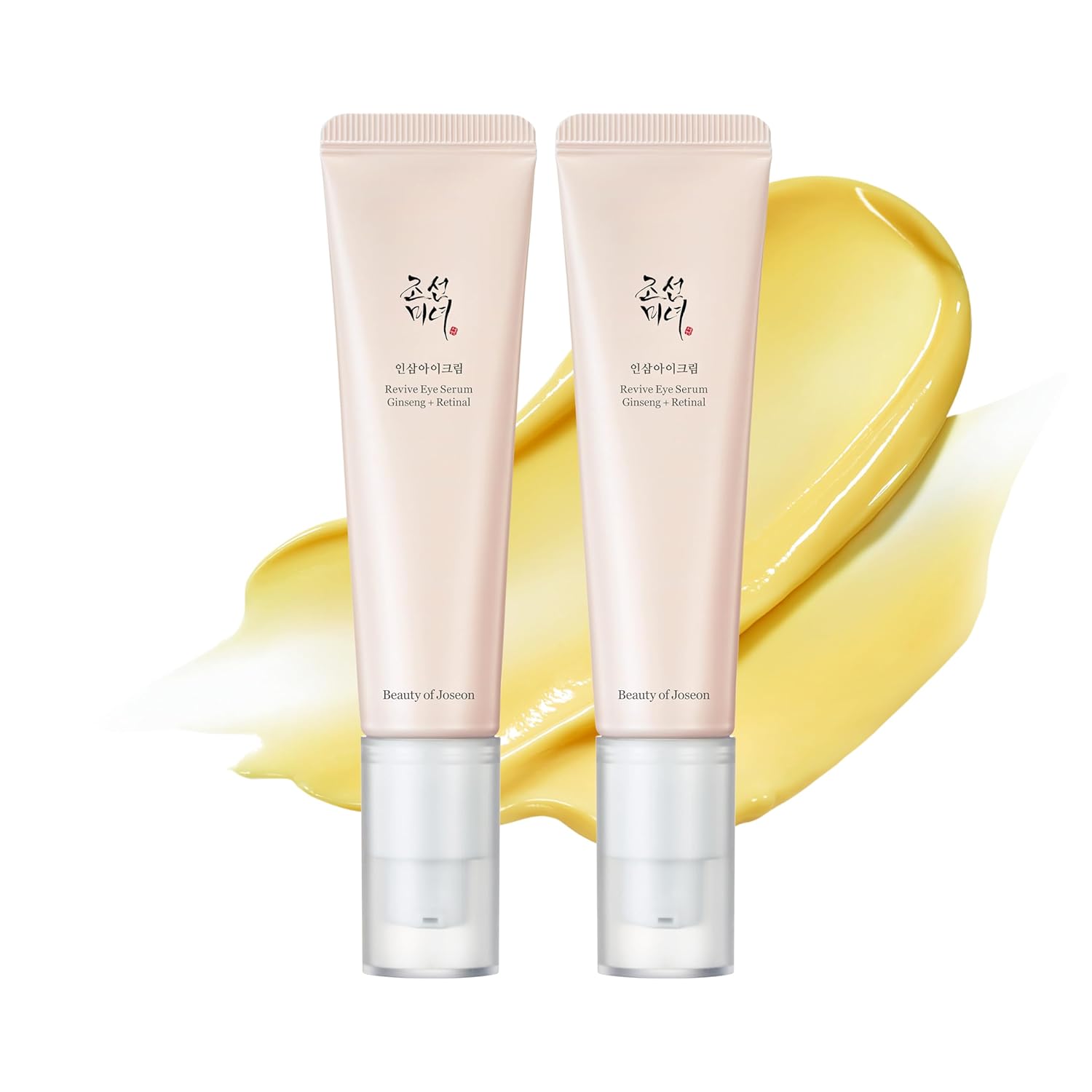
Beauty of Joseon Revive Eye Serum
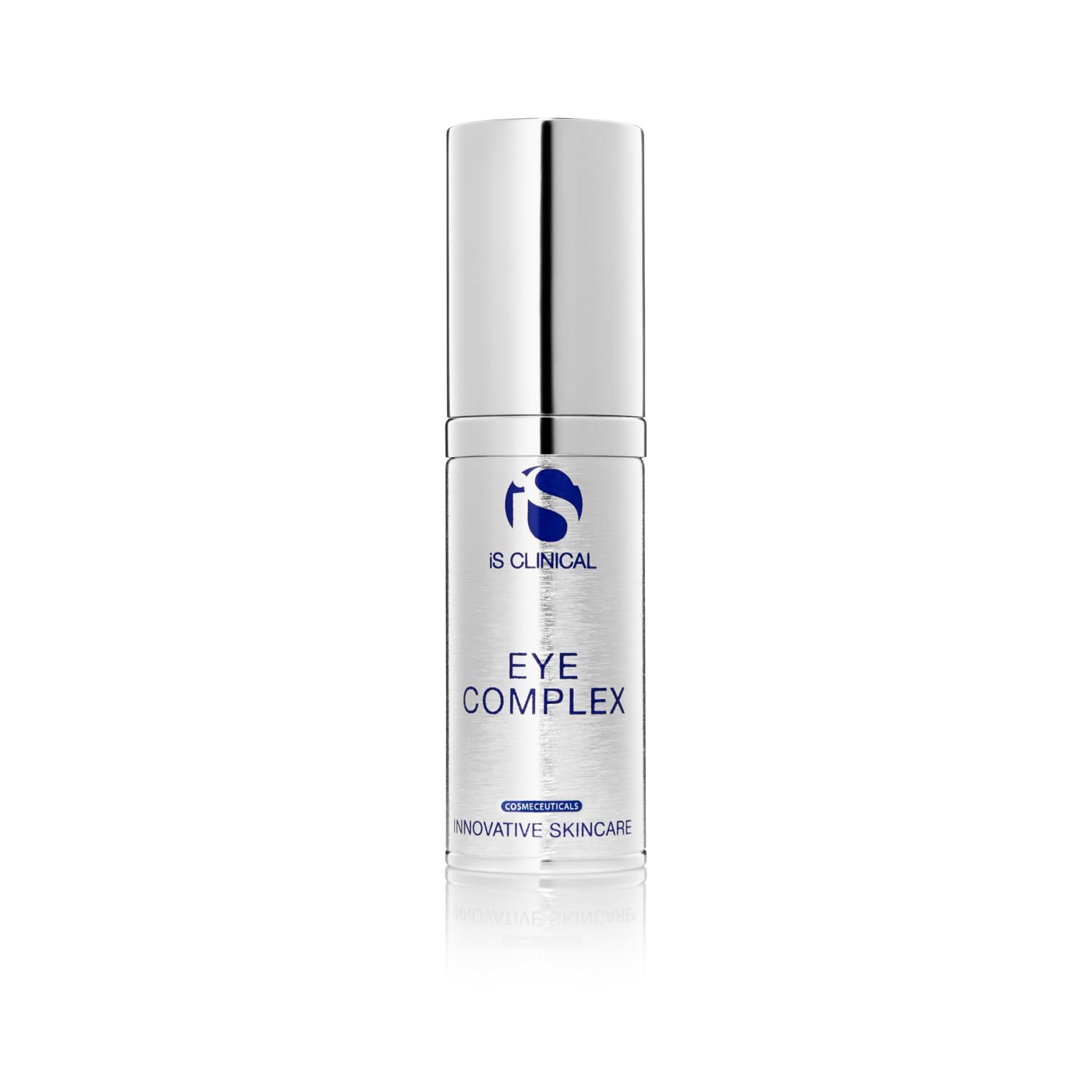
iS Clinical Eye Complex
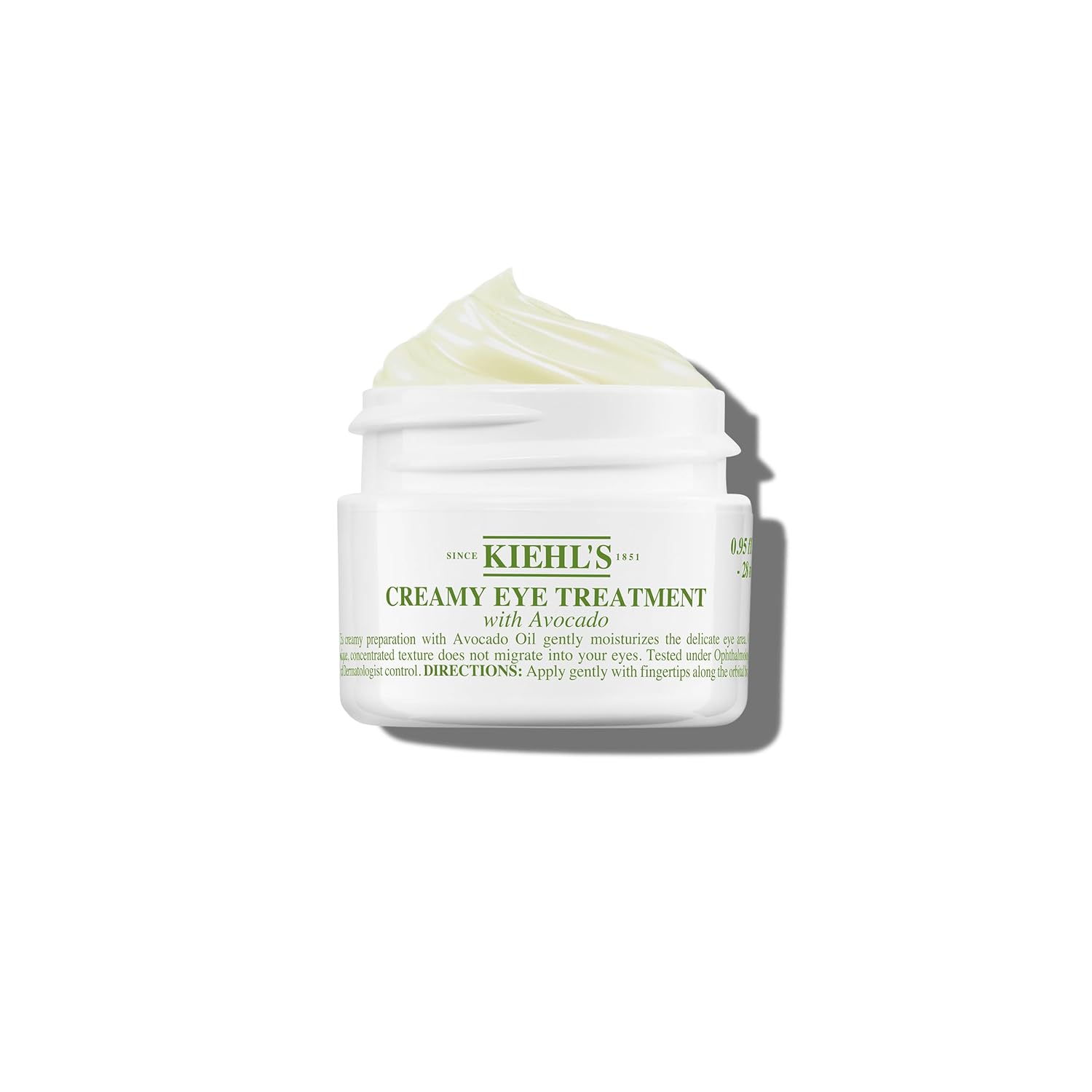
Kiehl’s Creamy Eye Treatment
With these top-rated eye creams for eczema, you can find the best anti-inflammatory eye cream to soothe and nourish your sensitive skin.
Natural and Organic Solutions for Eye Eczema

Looking for natural ways to soothe eye eczema? There are many effective options. Burt’s Bees has a plant-based eye cream with olive oil, cotton flower extract, and shea butter. It gently hydrates and calms the eye area. Dr. Organics Manuka Honey Rescue Cream and Balmonds Skin Salvation are also great for eczema-prone eyes.
General ointments and serums with shea butter and Caudalie SOS Vinosource Serum can also help. They can manage flare-ups and support the skin’s barrier. These natural solutions are gentle and effective.
“More than half of all eczema patients have reported using some form of alternative medicine or home remedy.”
When choosing natural eye care for eczema, watch out for triggers. Pick products made for sensitive skin. Using these gentle, plant-based options can help you find relief and promote healthier skin around your eyes.
Dermatologist-Recommended Eye Creams for Sensitive Skin
Dermatologists say gentle, hypoallergenic eye creams are key for treating eye eczema. They look for creams with soothing ingredients like chamomile and aloe. These help calm irritation and reduce inflammation in the delicate eye area.
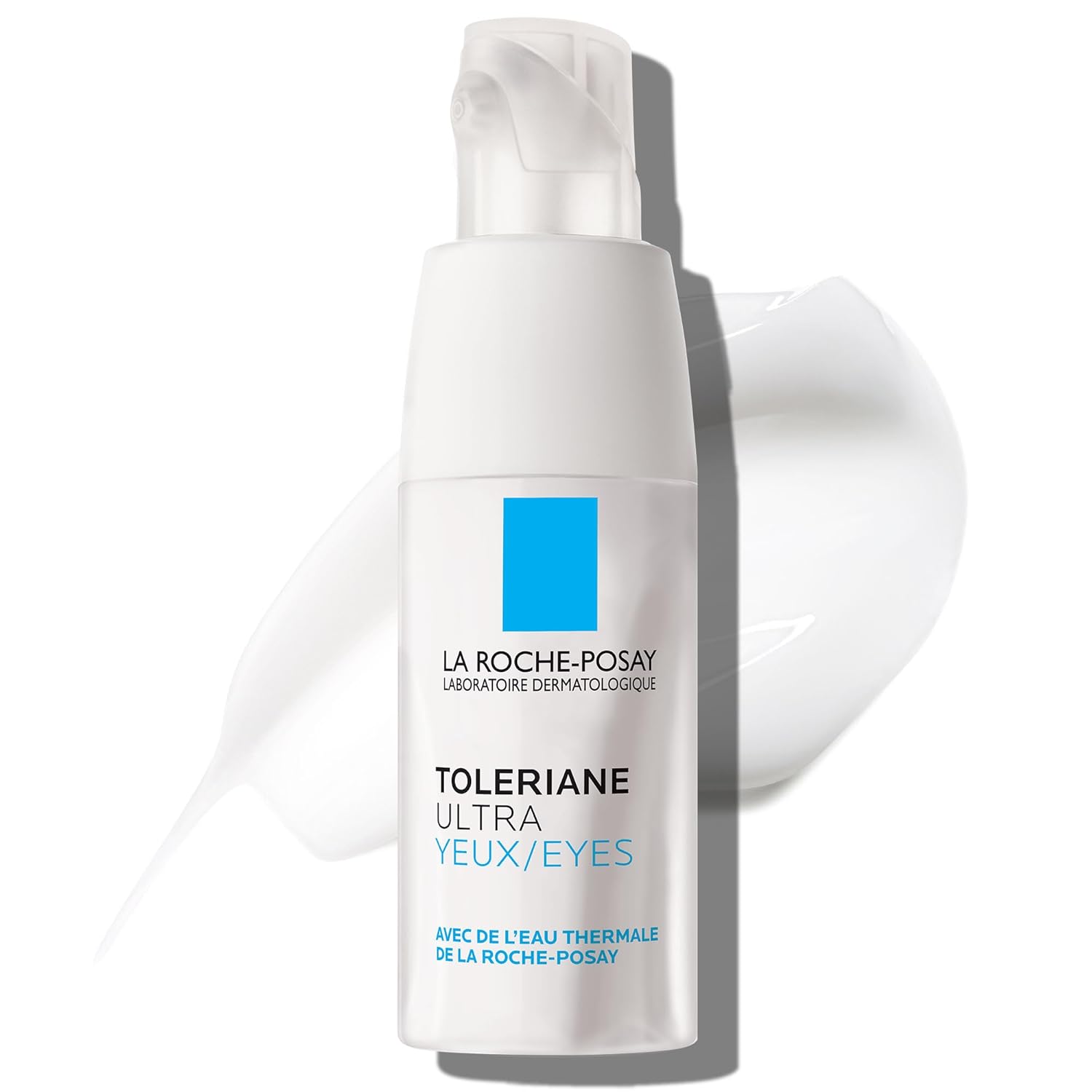
La Roche-Posay Toleriane Dermallergo Eyes
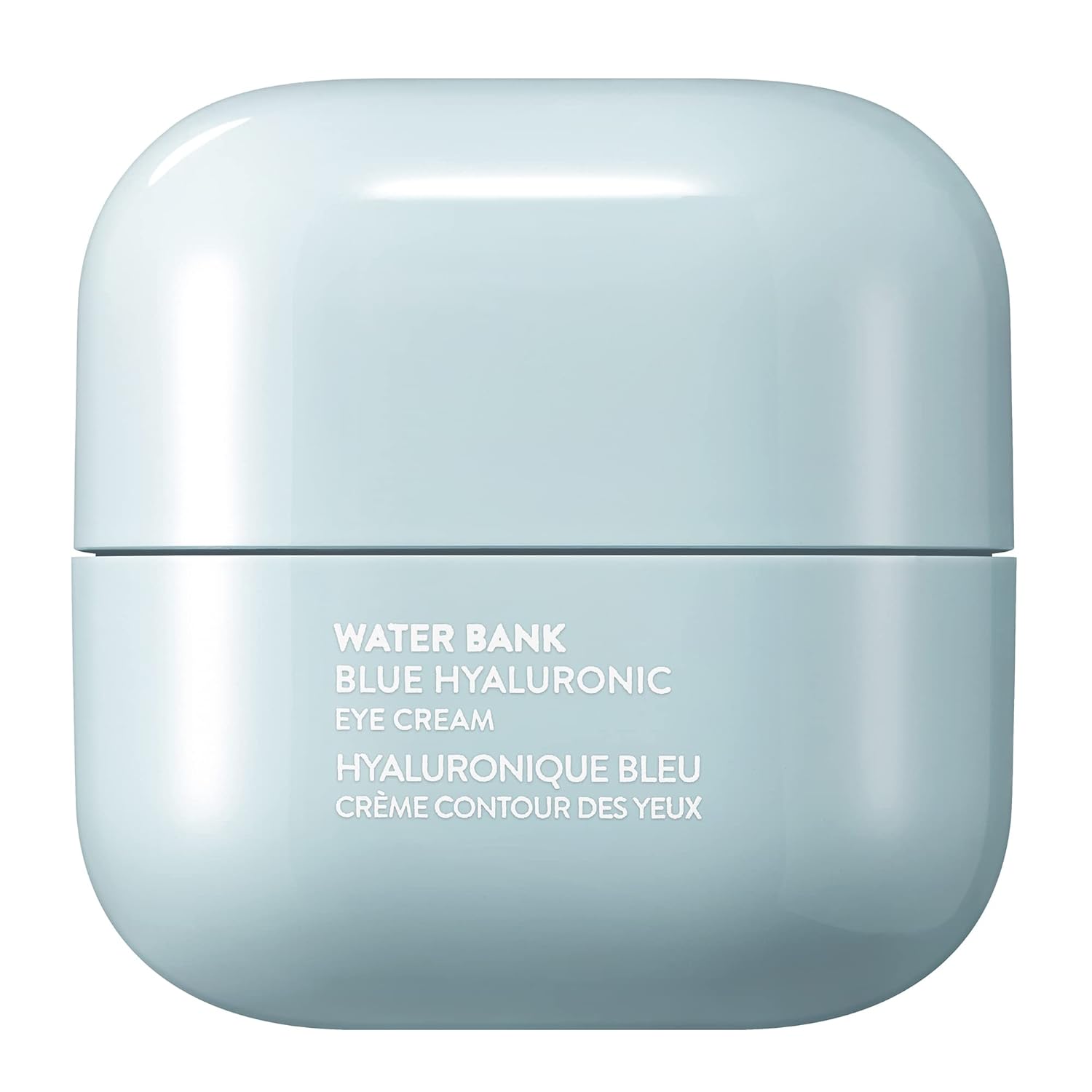
Laneige Water Bank Blue Hyaluronic Eye Cream
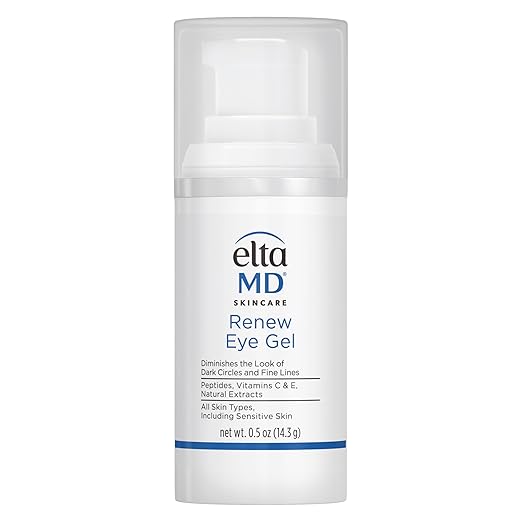
EltaMD Renew Eye Gel
Professional Insights
Top dermatologists warn against eye creams with alcohol or fragrances. These can make eczema worse and irritate the skin. They suggest choosing creams without common irritants and with simple ingredients.
Clinical Studies
Studies show eye creams with tacrolimus might work better than steroid creams for eyelid eczema. But, always talk to a dermatologist before trying any new products.
Safety Considerations
Always test a new eye cream on a small area first. Watch for stinging, redness, or more irritation. If you see these signs, stop using it and ask a dermatologist for advice.
Always check with a dermatologist before trying a new eye cream, especially if you have eczema or sensitive skin. The right dermatologist-recommended eye cream can help soothe your sensitive skin eye cream issues.
How to Apply Eye Cream Correctly for Eczema Relief
Applying eye cream right is key when you have eczema near your eyes. The skin around your eyes is thinner and more sensitive. This makes it more likely to get irritated and inflamed from eczema. Using the right techniques can really help soothe the skin.
Begin by tapping a small amount of eye cream, about 1/8 teaspoon, around your orbital bone. Start from the inner corner and move outward. Don’t tug or pull on the skin, as this can make things worse. If you can’t see well, ask a friend or family member to help you apply it gently.
Try to use the eye cream twice a day, in the morning and at night. Putting it on before your moisturizer helps it absorb better. This way, the good stuff in the cream can get into your skin more easily.
“Proper application of eye creams is crucial for managing eczema around the delicate eye area. Gentle tapping and twice-daily use can make all the difference in soothing irritation and providing much-needed relief.”
When picking an eye cream for eczema, look for ones with soothing and hydrating ingredients. Look for ceramides, hyaluronic acid, colloidal oatmeal, and glycerin. Stay away from products with fragrances, essential oils, and some preservatives. Talk to a dermatologist for advice on the best cream and how to use it.
By following these easy steps and using the right eye cream, you can manage eczema around your eyes. This can help you find relief from the discomfort and irritation. Remember, being consistent and patient is important when treating this chronic condition.
Morning vs. Night Eye Cream Treatment Options
Managing eczema around the eyes requires a careful eye cream routine. Day and night treatments target different issues. This approach helps soothe, nourish, and protect the sensitive eye area.
AM Treatment Protocol
Begin with an eye cream that has caffeine. It reduces puffiness and lightens dark circles. Choose creams with green tea or bisabolol for calming. These lightweight creams make you look awake and refreshed.
PM Treatment Protocol
Switch to a thicker, more intense eye cream at night. Night creams often have retinol to fight fine lines and wrinkles. They work while you sleep, giving your skin a deep nourishment.
Always consider your eczema symptoms when picking eye creams. Choose soothing, hydrating, and restorative ingredients. This ensures your eye area gets the care it needs.
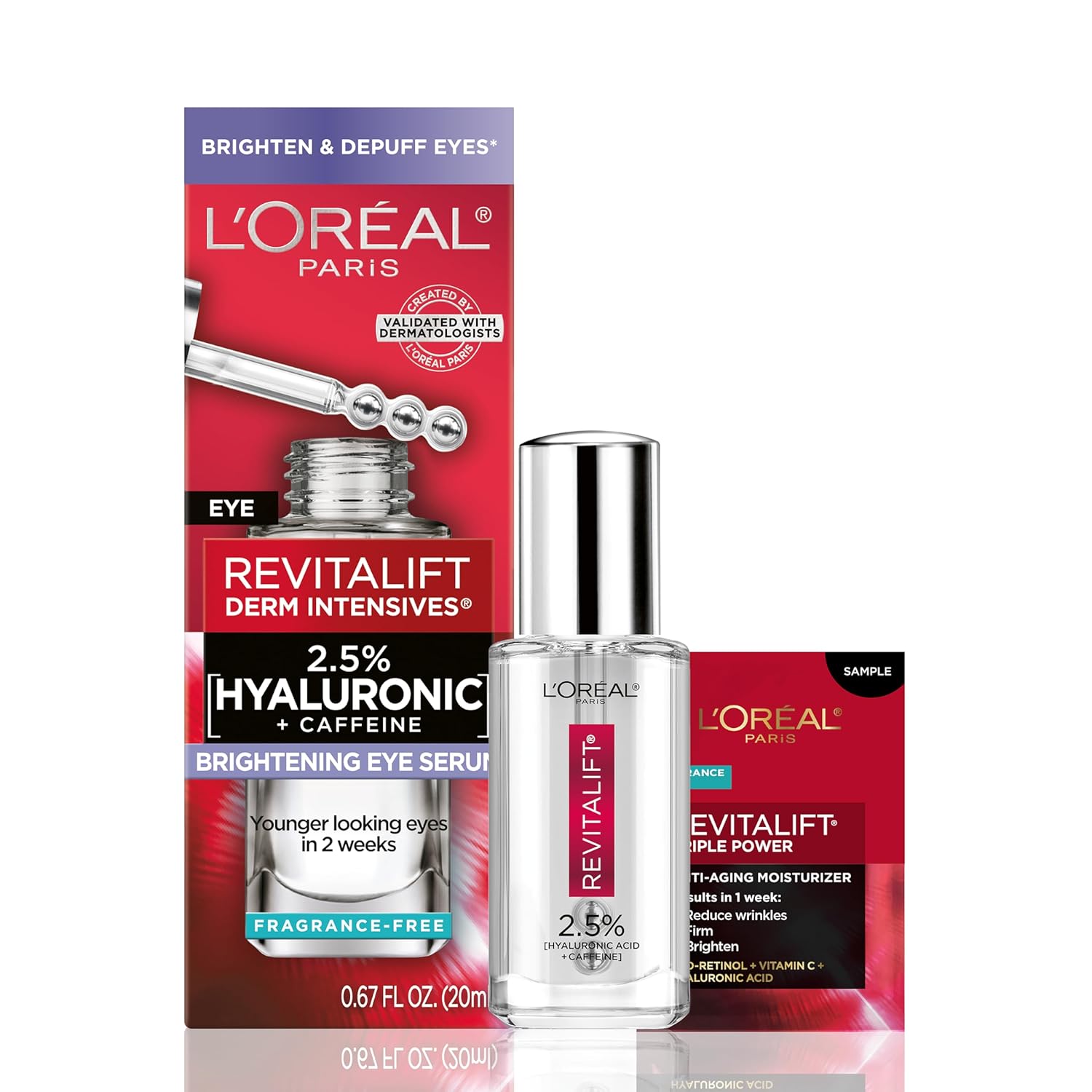
L’Oréal Paris Revitalift Derm Intensives Hyaluronic Acid and Caffeine Eye Serum
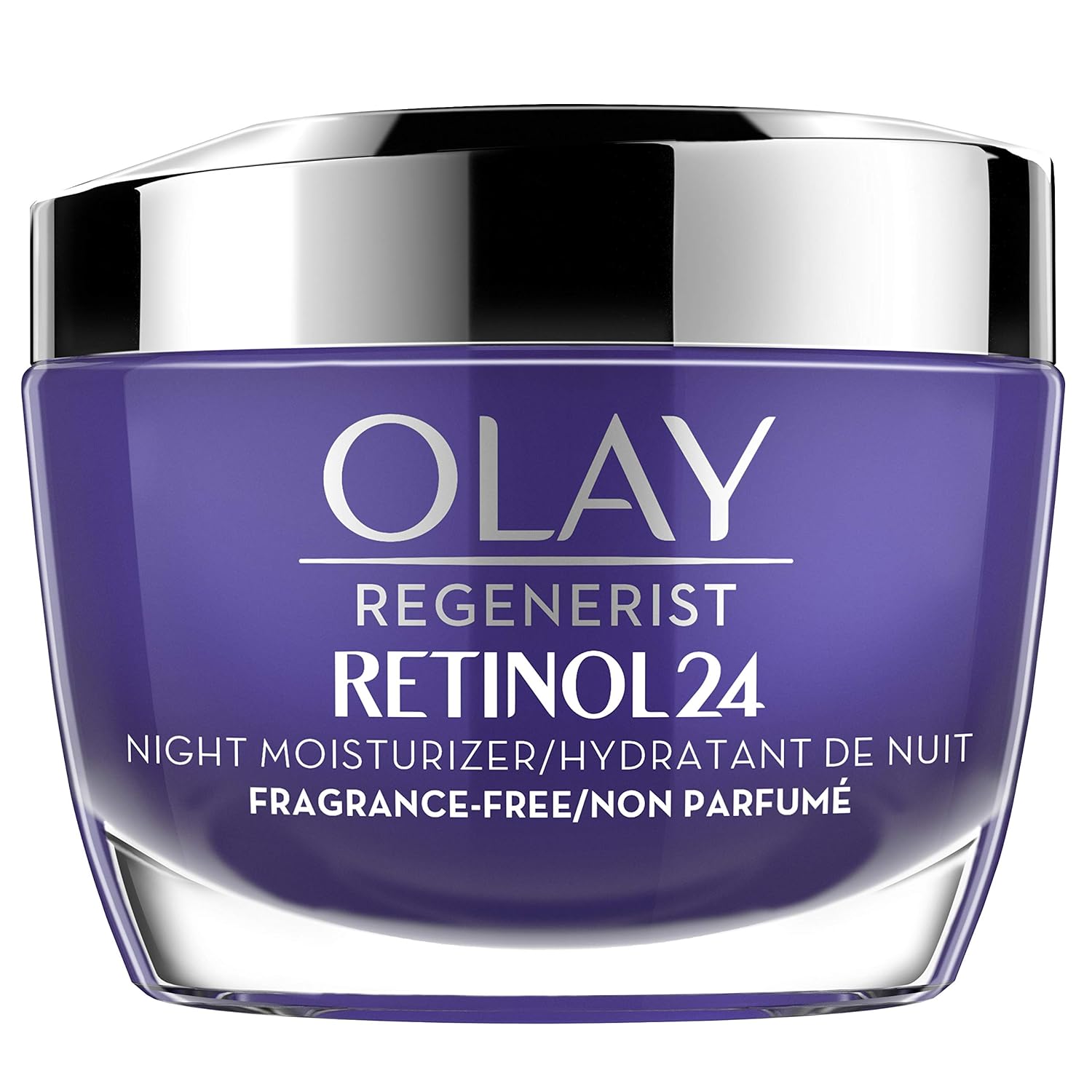
Olay Regenerist Retinol24 Night Eye Cream
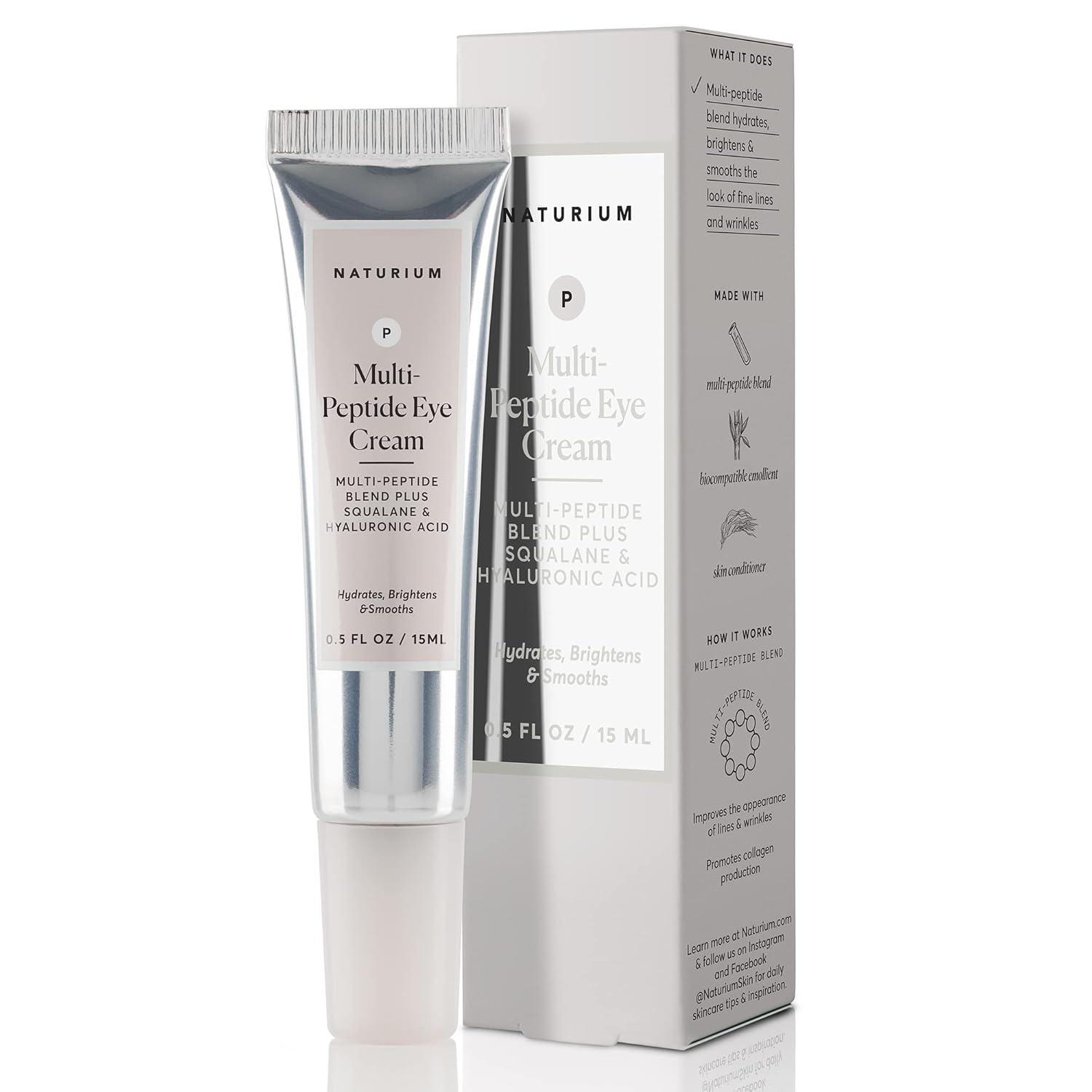
EltaMD Renew Eye Gel
Listen to your skin and adjust your eye cream routine as needed. This ensures your eye area gets the right care for your eczema.
Ingredients to Look for in Eye Eczema Creams

When picking an eczema cream for your eyes, look for certain ingredients. Hyaluronic acid helps keep the skin moist. Niacinamide fights inflammation, and vitamin E calms the skin.
Plant-based ingredients like aloe vera, cucumber extract, and chamomile are also great. They soothe and reduce inflammation, perfect for soothing eye eczema.
- Hyaluronic acid for deep hydration
- Niacinamide to reduce inflammation
- Vitamin E for its soothing properties
- Ceramides to strengthen the skin barrier
- Aloe vera, cucumber extract, and chamomile for their calming effects
When choosing an eczema cream for your eyes, pick a gentle one. It should be fragrance-free and made for sensitive skin. These ingredients help your skin heal and feel better.
Ingredients to Avoid in Eye Creams
Choosing the right eye cream for eczema-prone skin is key. Stay away from ingredients that can make things worse. Look for an eczema-safe eye cream that soothes your sensitive eye area.
Common Irritants
- Fragrance: Fragrances can be allergens and cause flare-ups in sensitive skin or atopic dermatitis.
- Tea Tree Oil: It may be beneficial but can irritate and cause allergic contact dermatitis in eczema patients.
- Urea: Good for psoriasis but can irritate and disrupt the skin’s acid mantle in atopic dermatitis.
- Lanolin: From sheep’s wool, it can cause allergic reactions in some with eczema.
- Retinoids: Retinoic acid and other retinoids can trigger eczema flares and should be avoided by those with sensitive skin.
- Foaming Agents: Surfactants and foaming agents in shampoos and body washes can lead to allergic contact dermatitis.
Harmful Preservatives
- Parabens: Common preservatives linked to skin irritation and potential health concerns.
- Propylparaben: A paraben type that can cause flare-ups in those allergic to it, especially in topical steroid medications for eczema.
- Alcohol (Ethanol): Drying and irritating, alcohol should be avoided in irritant-free eye cream formulations.
Always read the label and patch test new products before using them fully. This ensures they don’t irritate your eczema. By avoiding these common irritants and harmful preservatives, you can find an eye cream that soothes and nourishes your sensitive skin.
Treatment Duration and Expected Results
Managing eyelid eczema can take different amounts of time. This depends on how bad the condition is and how well the treatment works. Usually, eye creams for eczema start to help in about three weeks if used every day.
But, it’s key not to stop using the cream just because you feel better. You should talk to your doctor about when to stop the treatment. They can also help you watch for any signs of the eczema coming back. Keeping away from things that make it worse and sticking to a good skincare routine are also important.
For some, eyelid eczema can be hard to deal with. It might take up to seven years to find the right treatment. This shows why it’s so important to get help from a doctor and work with a dermatologist. They can help create a treatment plan that really works for you.
FAQ
What are the best eye creams for eczema?
Avène Soothing Eye Contour Cream, E.l.f. Skin Holy Hydration Eye Cream, and Cetaphil Eye Gel-Cream are great for eczema. They use ingredients like hyaluronic acid, vitamin E, and thermal spring water to soothe and hydrate.
What causes eyelid eczema?
Eyelid eczema comes from genetics and the environment. If you have allergies or asthma, you might be more at risk. Things like cigarette smoke, perfumes, and certain soaps can also trigger it.
What are the symptoms of eyelid eczema?
Symptoms include a red rash, itching, swelling, and discomfort. Scratching can make the skin thick and scaly. You might also see cracks, crusted eyelashes, and feel burning or pain.
What are the top natural and organic solutions for eye eczema?
Burt’s Bees has a plant-based eye cream with olive oil and shea butter. Dr. Organics Manuka Honey Rescue Cream and Balmonds Skin Salvation are also good natural options. Shea butter and Caudalie SOS Vinosource Serum have helped many with eczema.
What should I look for in an eye cream for eczema?
Look for eye creams with soothing ingredients like chamomile and aloe. Avoid alcohol, fragrances, and harsh preservatives. Hyaluronic acid, niacinamide, and ceramides are also good for eczema.
How do I apply eye cream correctly for eczema relief?
Use a thin layer of eye cream to avoid it running into your eyes. If you can’t see, ask a friend for help. A doctor can show you the right way to apply it. Use it twice a day for best results. But be careful with over-the-counter steroids.
How long does it take for eczema eye treatments to work?
Medicated creams usually work in three weeks. Stop using them when you see improvement. But if symptoms come back, see a doctor. Managing eczema long-term means avoiding triggers. Some cases take up to seven years to diagnose and treat.

